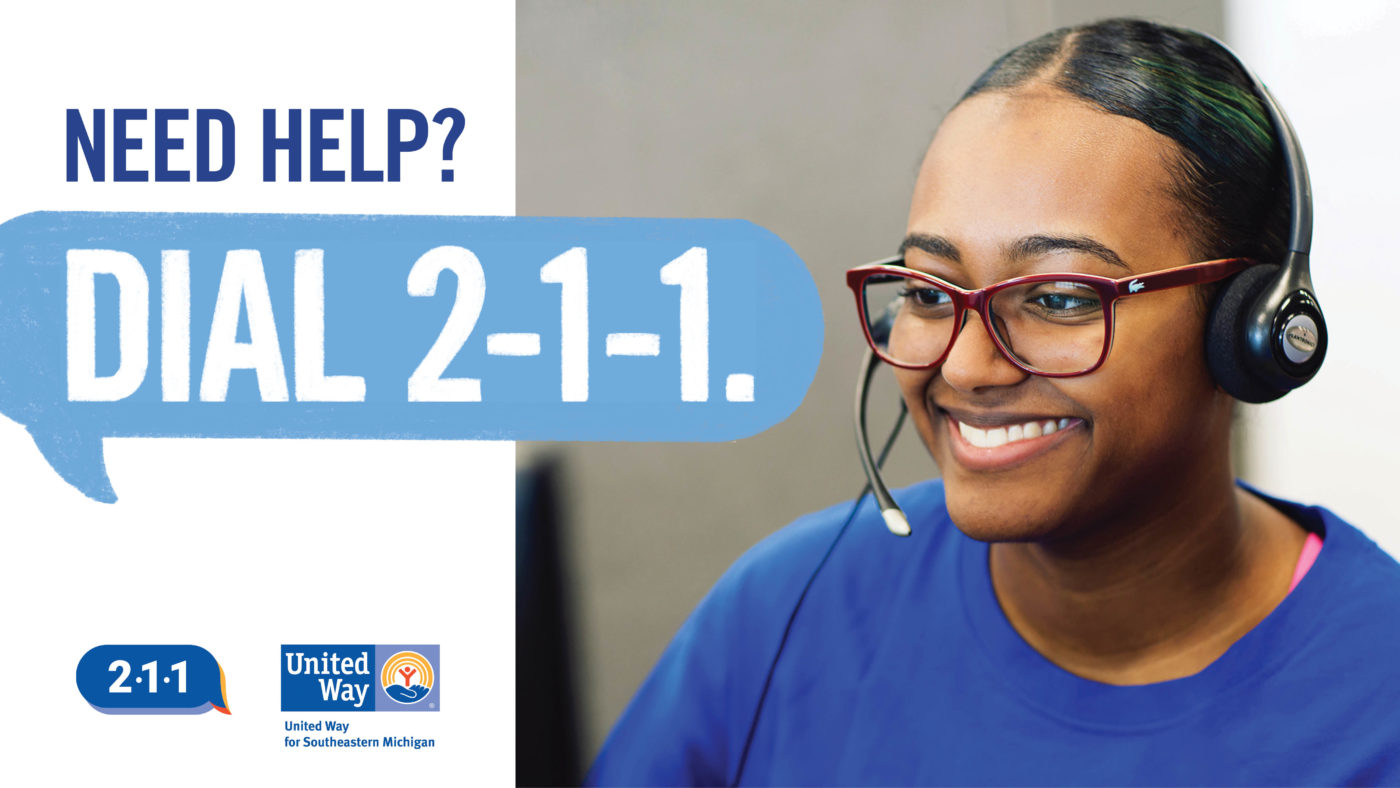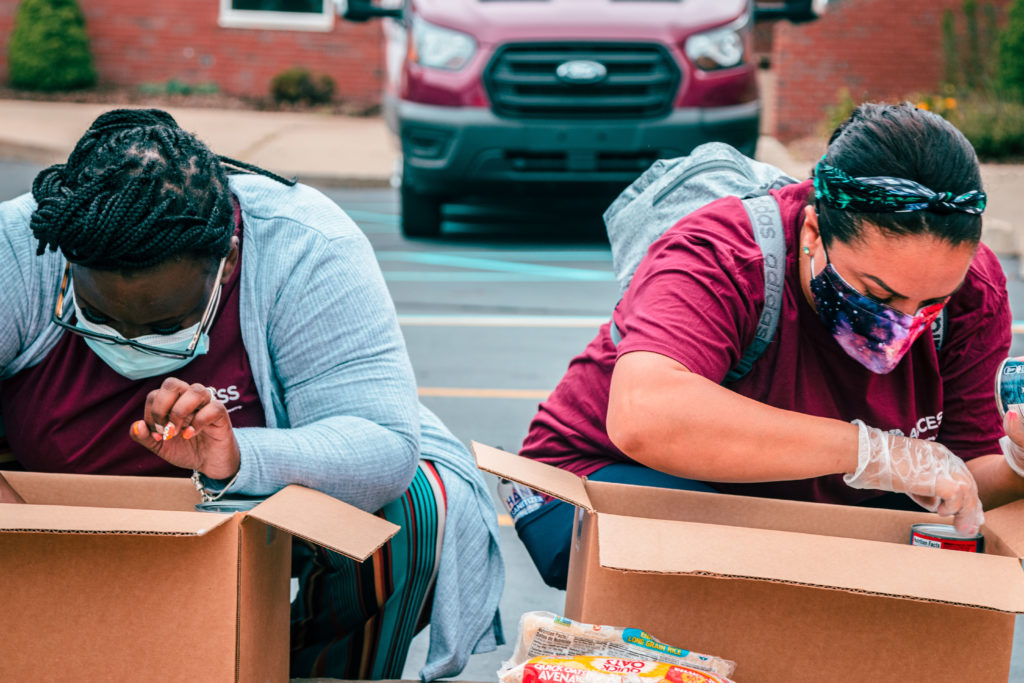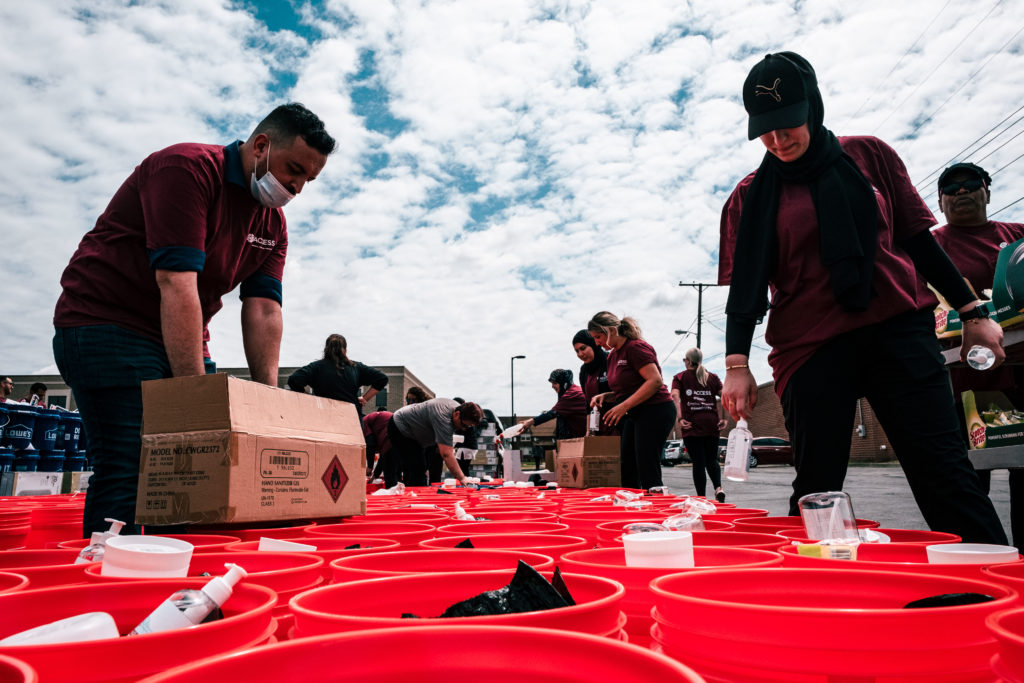Flood Recovery: ACCESS connects flood victims with needed supplies
Published on July 29, 2021 in Crisis Relief

United Way’s 2-1-1 team can help families affected by flooding connect with resources like volunteer cleanup services, support with replacing lost household items and help filing paperwork.
Call 2-1-1 or visit our webpage for more information.
Get Help
On Saturday, June 26, Brigitte Fawaz-Anouti awoke to more than 2 feet of flood water and sewage ravaging the basement of her Dearborn Heights home. By Monday morning, she was in her office at ACCESS — the nation’s largest Arab American community nonprofit — strategizing ways to help the thousands of others facing a similar plight.
Brigitte, the agency’s director of Social Services Main and Special Projects, quickly dismisses any praise or sympathy saying, “We’re ACCESS; it’s what we do.” Although more than 90 percent of her team was personally impacted by flooding, they focused on securing help for others.
One of the first calls they made was to United Way for Southeastern Michigan, a partner in their mission to empower individuals, families and communities.
Thanks to our newly launched Crisis and Recovery Fund, we provided grant funding to aid the community in managing the crisis. In addition to supporting families affected by the flood, the fund ensures that we can respond immediately to any future crisis that creates spikes in demand for food, shelter and access to emergency services.
“Access to unrestricted emergency funds is the most important thing to have during a crisis,” Brigitte said. “Funding must be ready to go so that when you do find products or necessary means to help the community, you’re able to pay for it. When funds are unrestricted – meaning not earmarked for certain programs – it allows us to help immediately with basic needs like food, water, sanitation, etc., while still thinking about the long-term goals.”

Focusing on health and safety
Prior to the launch of the Crisis and Recovery Fund, access to other United Way funds helped the agency navigate the early days of the COVID-19 crisis.
“United Way encouraged us to use the funding we received in the most effective way possible. Because of that, we could do things that were out of the norm. We could get creative. That led to us becoming the first agency to offer drive-thru testing. No one else was doing that. It became a game-changer in the fight against COVID,” Brigitte said.
With the region still reeling from the flood that left a major highway closed for two weeks and damaged an estimated 8,000 homes in Dearborn and 23,000 in Detroit, ACCESS is once again getting creative. With Crisis and Recovery Fund dollars, the organization assembled and distributed more than 3,000 cleaning kits that included bleach, fans, gloves, professional-grade sanitizer, wipes and other needed items. It also provided meals, non-perishable food boxes, and fresh fruits and vegetables to more than 700 families who lost power – an effort sponsored in part by Gleaners.
Brigitte stressed the importance of getting the cleaning kits into the hands of families with flood damage as soon as possible to reduce the risk of bacteria spreading and posing an additional threat.
“Stores were closed. Shelves were empty. The kits were the only way for a lot of people to clean and keep their family safe.”

Helping at home
Organizations from ACCESS to the city of Detroit are still seeking volunteers to help empty and sanitize flood-damaged homes.
Alex Ostergaard, a Ford engineer and Dearborn resident, assisted with a recent cleanup effort alongside other members of the Church of Jesus Christ and Latter-day Saints in Dearborn.
He wants others to understand the devastation and act.
“It’s a traumatic thing people are dealing with,” he said. “We’re there to clean up, but depending on the level of the damage, that means tearing out drywall, ripping up carpets and tossing out the belongings of families who were already just hanging on by a thread.”
After four days of work with 1,200 volunteers, he still feels like they “just scratched the surface.”
“So many people still need help. Some don’t even realize it because the water receded, yet they’re still at risk and need to sanitize,” he said.
Alex hopes that the Crisis and Recovery Fund will provide earlier access to resources, including funding, volunteers and staff so that families can recover more quickly the next time disaster strikes.
“My family went through flooding in 2014, so we understand how it feels. It’s nice to be able to help someone dealing with the same thing,” he said.
You can donate to the Crisis and Recovery Fund by clicking here. Those in need of flood assistance are encouraged to call 2-1-1 for help.